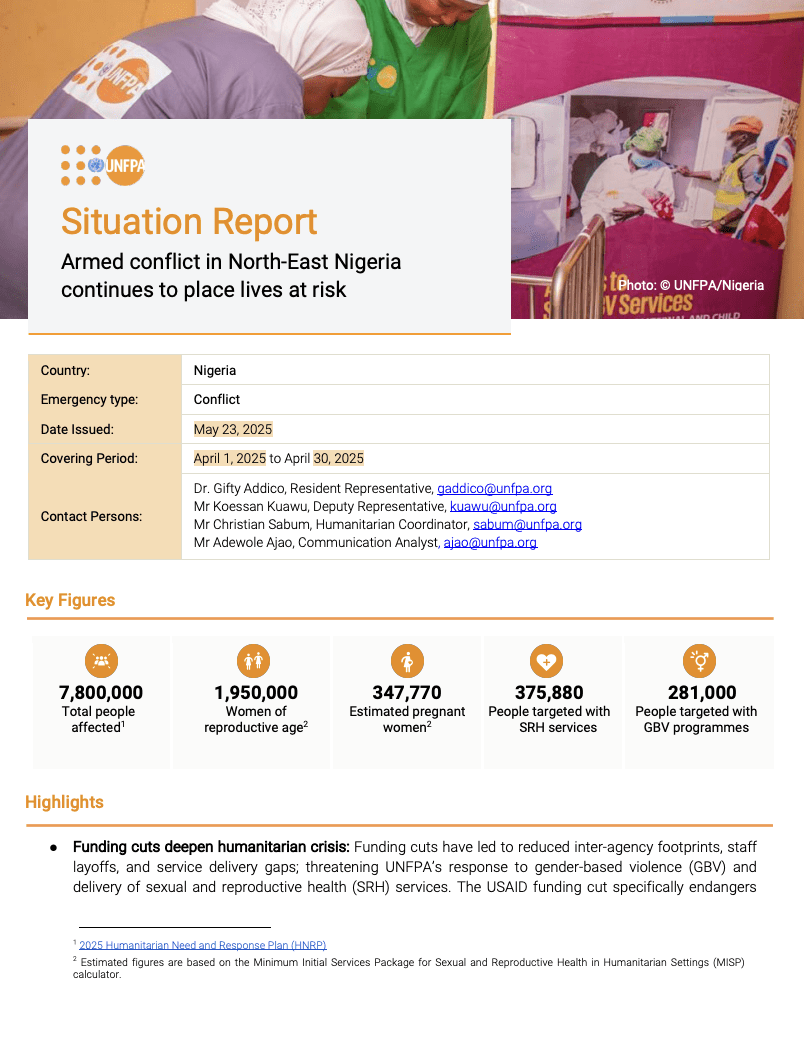
In April 2025, the humanitarian situation in North-East Nigeria continued to deteriorate due to escalating conflict and rising insecurity, particularly in Borno and Yobe States. Armed insurgents intensified attacks, imposed levies on communities, and triggered mass displacements, increasing civilian casualties and disrupting access to essential services. The resulting instability has compounded the ongoing nutrition crisis, with severe acute malnutrition threatening pregnant women and children. A recent fire incident at Giwa Army Barracks further displaced civilians and exposed women and girls to heightened protection risks. Women and girls, who make up a significant portion of the 7.8 million affected individuals, are especially vulnerable to violence, health risks, and socio-economic distress.
UNFPA responded with targeted support in sexual and reproductive health (SRH) and gender-based violence (GBV) prevention and response. A total of 6,504 individuals accessed SRH services through UNFPA-supported facilities, while 2,613 received GBV services including case management, psychosocial support, and legal assistance. Community outreach efforts reached over 9,600 people with awareness sessions on SRH and GBV. UNFPA also introduced a Cash and Voucher Assistance programme to increase uptake of services, supported vocational training for over 1,100 women and girls, and distributed 300 dignity kits. Coordination efforts included supporting 70 local women- and youth-led organizations and distributing reproductive health kits reaching more than 355,000 individuals.
Despite these achievements, UNFPA faces a severe funding shortfall. Of the required $US15.1 million to sustain SRH and GBV interventions in 2025, only $US1 million has been received, representing just 6.6 per cent of the total need. This leaves a funding gap of $US14.1 million, or 93.4 per cent, placing critical life-saving services for women and girls at risk. The USAID funding cut has already triggered staffing reductions and service delivery gaps, underscoring the urgent need for alternative financing and stronger national support to avoid further setbacks in protecting the most vulnerable.

